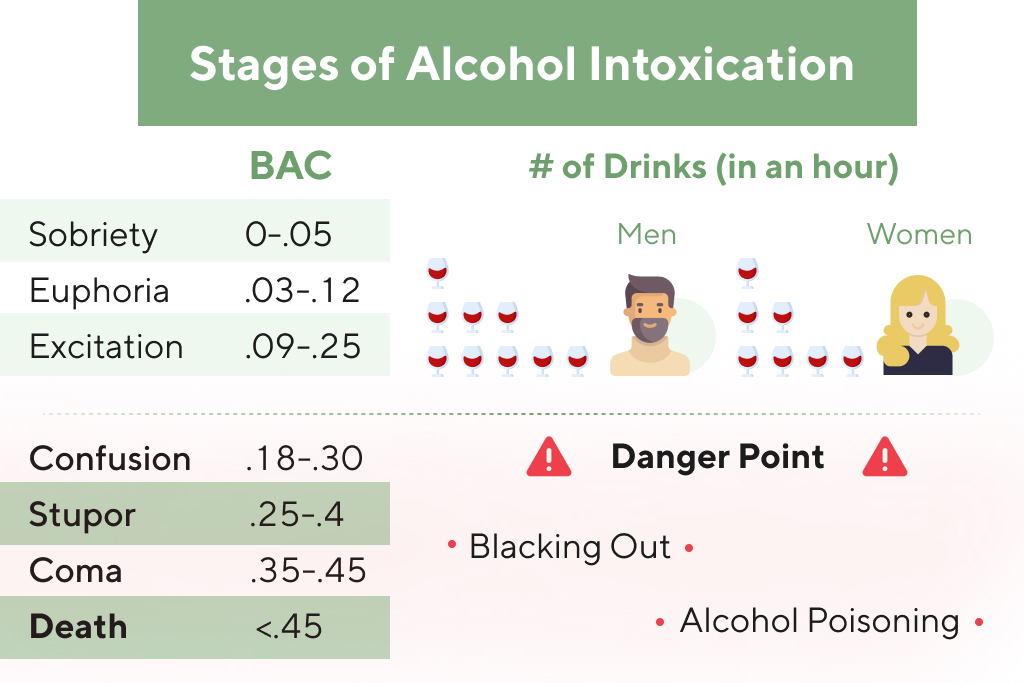End-stage alcoholism alcoholism symptoms is a life-threatening condition that requires immediate medical attention and compassionate care. Recognizing the symptoms and seeking professional help can make all the difference in improving quality of life and potentially reversing some of the damage caused by chronic alcohol abuse. If you’re receiving counseling, ask your provider about handling high-stress situations when you may feel like you need some additional mental health support. Your relationships are suffering and you do not feel like your friends or family understand your experience. Your health has likely deteriorated to the point of liver damage or even failure. At this stage, you will experience severe withdrawal symptoms when you stop drinking, potentially including seizures and vivid hallucinations.
Alcohol Use Disorder Comorbidities
- As you go through alcohol withdrawal, let your doctor know how you’re feeling, both physically and mentally.
- In addition to liver damage, alcohol’s long-term effects deplete vital nutrients in the body.
- Recognizing the symptoms of end-stage alcoholism can help individuals and their families make informed decisions about seeking care.
- While every person’s alcohol addiction is unique, alcohol affects people in similar ways.
A severe case of alcohol going back to drinking after being sober withdrawal can lead to complications, some of which can be life-threatening. To prevent this, your doctor may suggest a treatment program where you stay overnight. That way, you can get 24-7 support for your mental health and physical symptoms. The term mental breakdown is often used when a person has a mental health crisis that overcomes their emotions. It can stem from other conditions like depression and anxiety but tends to be a severe case. In some instances, a mental breakdown may lead an individual into other types of mental health conditions such as self-harm or suicidal ideation.
- Late-stage alcoholism is life-threatening, but it is not hopeless.
- Severe cases can lead to cirrhosis and liver failure if drinking continues.
- It can strain personal and professional relationships, leading to a loss of support.
- If your pattern of drinking results in repeated significant distress and problems functioning in your daily life, you likely have alcohol use disorder.
- Understanding your shortcomings based on your symptoms is the first step toward personalizing your treatment plan.
- Psychosis can occur for many different reasons and is a symptom seen in a variety of mental health conditions.
When to Seek Help for Drinking: Is It Time to Say “Enough Is Enough”?

Once they understand your drinking history, they’ll be better able to suggest treatments that could help you. Alcoholics Anonymous (AA) or other 12-step programs can offer that social support. AUD can cause unintended consequences even before a child is born. Drinking while pregnant can seriously harm the developing fetus, raising the risk of fetal alcohol syndrome, premature birth, and miscarriage.
The Effects of Alcohol Detox on Liver Regeneration
However, your mental abilities will continue to deteriorate with Wicke-Korsakoff Syndrome. Other risk factors include long-term illnesses or injuries that cause everyday life to be more difficult to manage on their own. The affects can range https://aaashop.onlinestore.id/2024/09/16/role-of-the-substance-abuse-counselor/ from dementia and intellectual functioning to debilitating conditions that require long-term care, even if a person has been sober for a period of time. At this stage, drinking becomes everything in your life, even at the expense of your livelihood, your health and your relationships. Attempts to stop drinking can result in tremors or hallucinations, but therapy, detox, and rehab can help you get your life back.

Advanced Stages of Alcoholism and Their Physical Symptoms

End-stage alcoholism, also referred to as stage 4 alcoholism, is the final phase of alcohol use disorder (AUD). At this point, the body and mind have suffered extensive damage due to prolonged alcohol abuse, making medical intervention essential. Psychosis can occur for many different reasons and is a symptom seen in a variety of mental health conditions. Alcohol-induced psychosis, also known as alcoholic hallucinosis, is directly linked to alcohol use or misuse.
- On average, members see a 30% reduction in alcohol consumption in 3 months, leading to improved sleep, diet, and overall wellbeing.
- However, only about every second person living with an alcohol use disorder will develop symptoms due to alcohol withdrawal when drinking is strongly reduced or stopped.
- You may also receive other medications or treatments for related health issues, like IV fluids for dehydration and electrolyte imbalances or antinausea medicines if you experience vomiting.
- Mental health can also take a toll; prevalent symptoms include heightened anxiety or irritability, particularly when access to alcohol is restricted.
Moderation in alcohol use, a nutrient-rich diet, and proper hydration are essential for protecting muscle health and preventing alcoholic myopathy. Sometimes referred to as moderate alcohol use disorder, this middle stage of alcohol addiction has negative consequences that start to pile up. The negative consequences of alcoholism become irreversible at this point. This can include the experimental use of alcohol, occasional use, or occasional binge drinking (once or twice a year). Initial use of alcohol may not yet be a problem for the individual or those close to them.
You’ll want to find a rehab center that has medically-supervised detox capabilities so that you can comfortably and safely detox from alcohol. There are inpatient and outpatient options, but an addiction specialist should determine the best level of care for you based on your individual needs. Co-occurring mental health conditions like anxiety or depression can lead individuals to self-medicate with alcohol. This often results in a quicker dependency as both conditions feed into one another, creating a self-sustaining cycle of addiction.